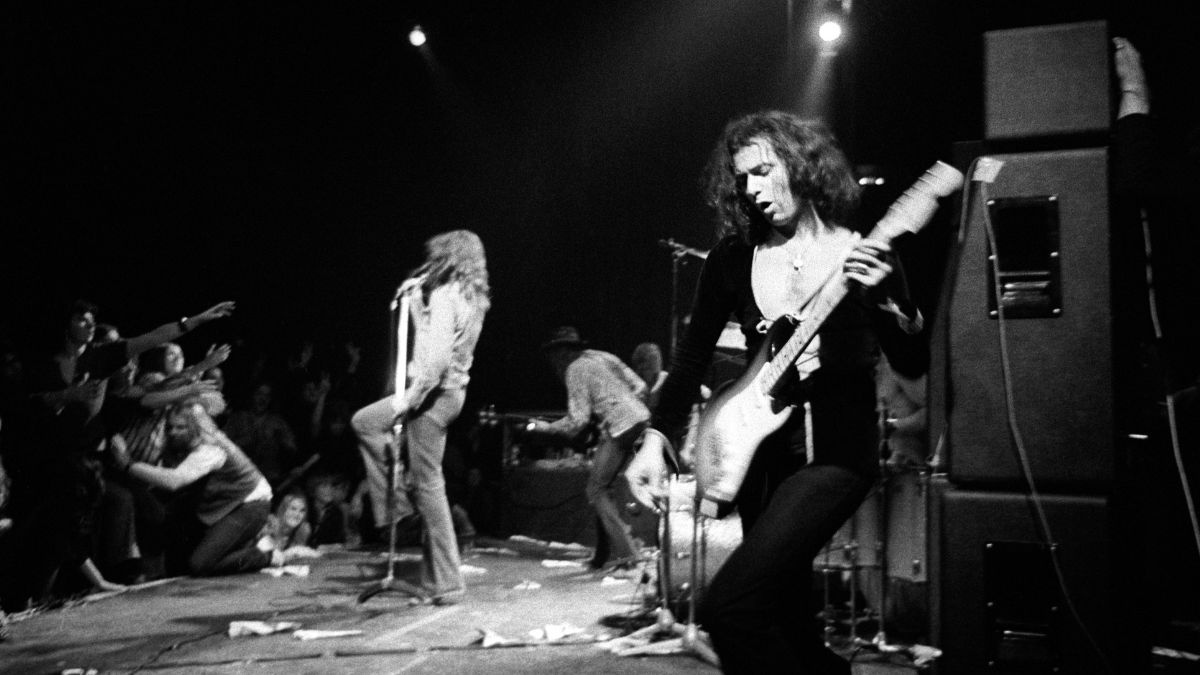“We still respected each other, but we never got on. We just couldn't be in the same room.” Ritchie Blackmore on why Deep Purple couldn't survive with him and Ian Gillan onboard
The two musicians didn’t say a word to one another during the classic Mark II line-up’s doomed final months, but still produced one more hit record

It took a while for Ritchie Blackmore to get the right mix of musicians in Deep Purple. After releasing three albums in two years, the group evolved into its Mark II lineup, which yielded the band’s biggest successes.
But Blackmore knew the group’s classic line-up was doomed long before their personnel changed for a second time. It was either that or the band split.
Deep Purple originally formed as a heavy psychedelic group featuring Blackmore, vocalist Rod Evans, bassist Nick Simper, keyboardist Jon Lord, and drummer Ian Paice, the only founding member who remains today. Blackmore started out the band playing a Gibson ES-335 sold to him by amp builder Jim Marshall, who was just a humble store owner at the time. The guitarist eventually switched to Fender Stratocasters when he bought one of Eric Clapton’s for £60.
By then, Deep Purple was shifting into its Mark II version, featuring Blackmore, Lord and Paice alongside bassist Roger Glover and singer Ian Gillan. This brought about a harder rock sound heard on groundbreaking records like In Rock, Fireball and Machine Head.
But behind the band's success, the relationship between Blackmore and Gillan began to sour.
“He was, as they say, an alpha guy. So was I,” Blackmore recalled in the 2015 documentary, The Ritchie Blackmore Story. “He wanted to control, I wanted to control. So we buted heads because of that
“We still respected each other, but we never got on. We just couldn't be in the same room. That was the problem,” he explains. “We weren't speaking, and it was just not going anywhere. I wasn't speaking to him; he wasn't speaking to me. We weren't being creative.”
All the latest guitar news, interviews, lessons, reviews, deals and more, direct to your inbox!
The pair knew that one of them had to go or the band would meet a less-than-amicable end. Ultimately, it was Gillan who fell on his sword. Blackmore says the singer agreed to leave 18 months in advance.
The writing of the line-up’s last record, Who Do We Think We Are, was born during this tumultuous period.

“In the last year of the band’s life, I don’t think Ritchie or Ian Gillan spoke one word to each other,” Glover once told the BBC. “They became two poles, because the more one would do it, the more the other would do it. And the more one got away with it, the more the other one was determined he was going to get away with it.”
The growing tension and silence between the two musicians, coupled with a string of band-wide illnesses and fatigue, plagued its creation. The album was recorded, like its predecessor, using the Rolling Stones Mobile Studio. Blackmore pushed for a return to their bluesy roots, having felt Machine Head was too commercial-sounding for his liking.
The record was a success, even with the dwindling harmony behind the scenes. It broke the top five in the U.K. charts, and peaked at 15 in the U.S.

Alhough the band had to shake up its personnel to survive, Lord was left to ponder what might have been.
“It was the biggest shame in rock and roll,” he said (via Ultimate Classic Rock). “God knows what we would have become over the next three or four years.”
Elsewhere, Blackmore has reflected on the chaos of writing “Smoke on the Water,” with the recording session inspired by a casino fire, and recording taking place while police tried to break into the studio after receiving noise complaints.
And his wife, Candice Night, has detailed the health issues that are currently preventing the guitarist from touring.
A freelance writer with a penchant for music that gets weird, Phil is a regular contributor to Prog, Guitar World, and Total Guitar magazines and is especially keen on shining a light on unknown artists. Outside of the journalism realm, you can find him writing angular riffs in progressive metal band, Prognosis, in which he slings an 8-string Strandberg Boden Original, churning that low string through a variety of tunings. He's also a published author and is currently penning his debut novel which chucks fantasy, mythology and humanity into a great big melting pot.

